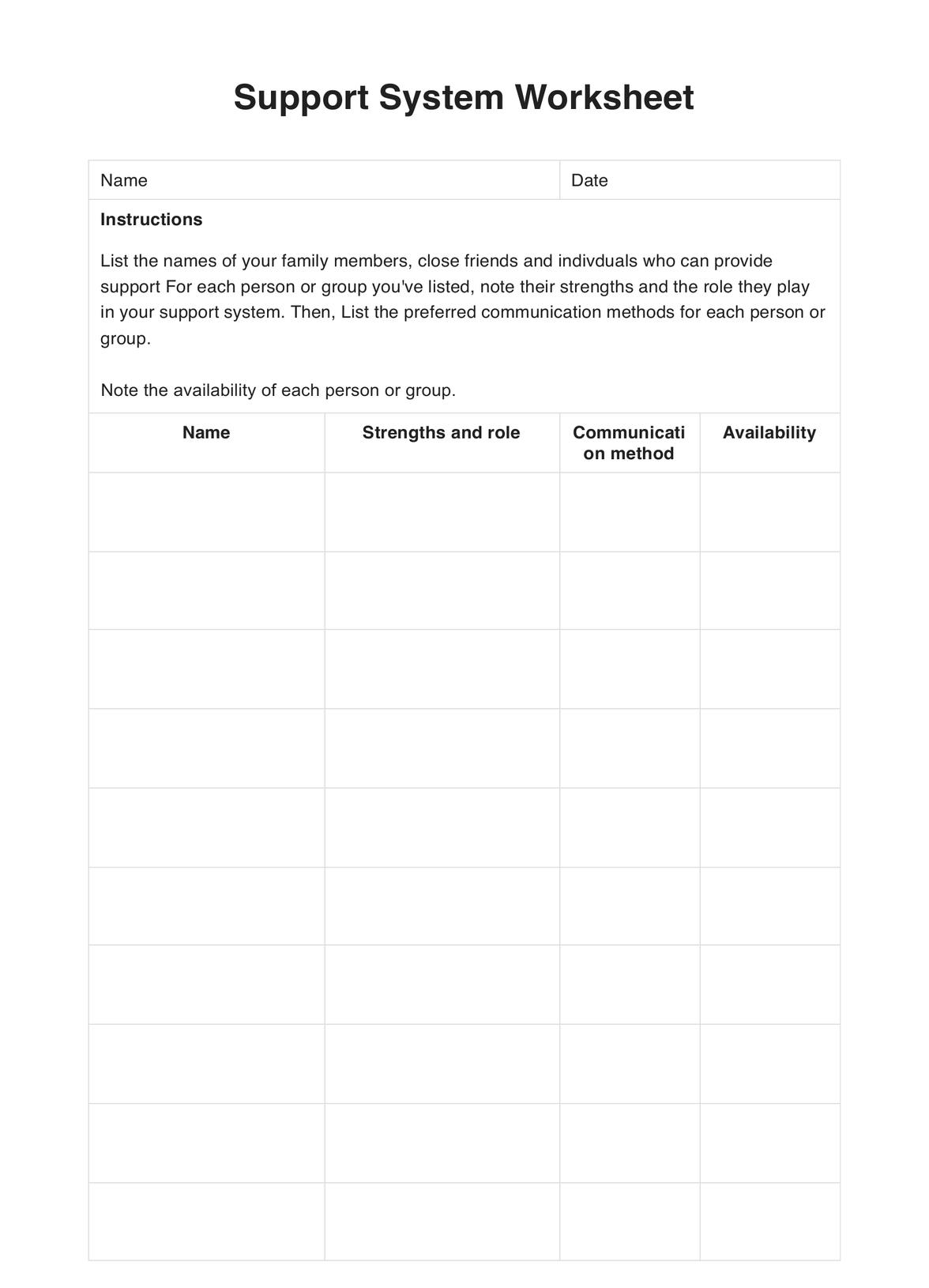Therapists, counselors, and other mental health professionals often use Support System Worksheets to help clients build relationships with their support networks.

Support System Worksheets
Use Carepatron's Support System Worksheet to help clients manage and organize their support systems. Access the PDF template to get started.
Support System Worksheets Template
Commonly asked questions
You can use a Support System Worksheet at any stage of therapy. Some therapists use them as part of an initial intake assessment, while others may introduce them when the client is ready to explore their support system further.
These worksheets are designed to help your clients identify and reflect on the people and resources they have in their support system. They can also be used to create action plans for strengthening these relationships or obtaining additional support.
EHR and practice management software
Get started for free
*No credit card required
Free
$0/usd
Unlimited clients
Telehealth
1GB of storage
Client portal text
Automated billing and online payments











